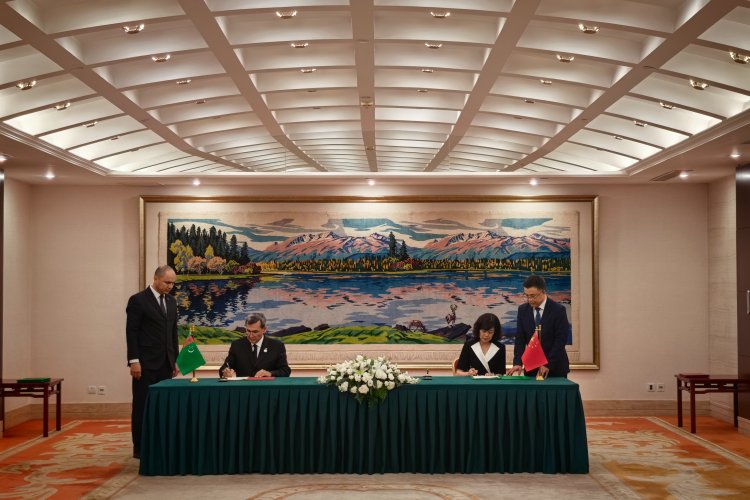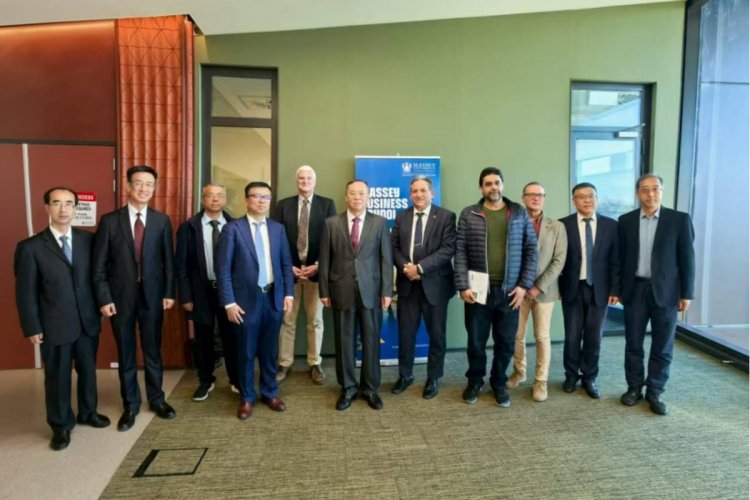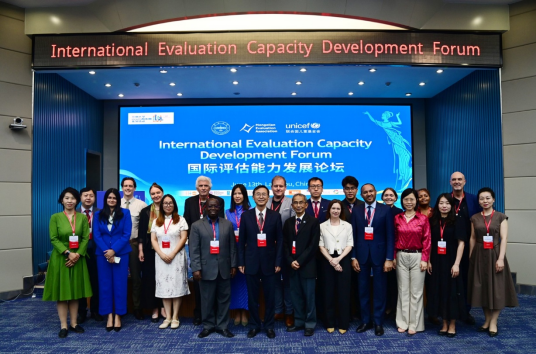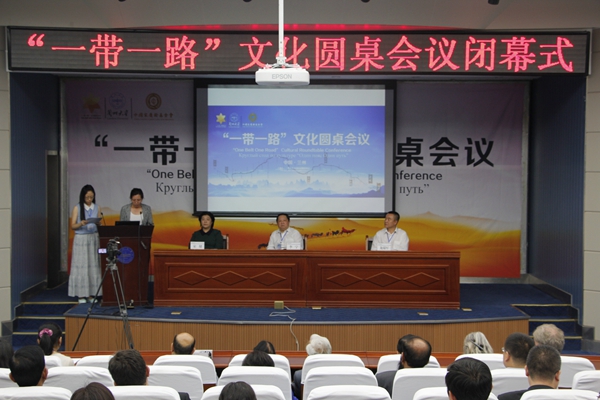
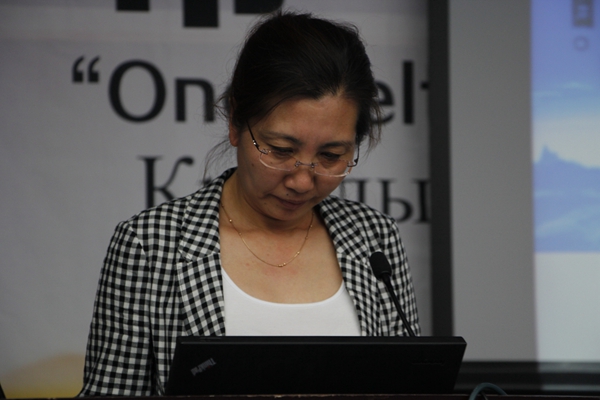
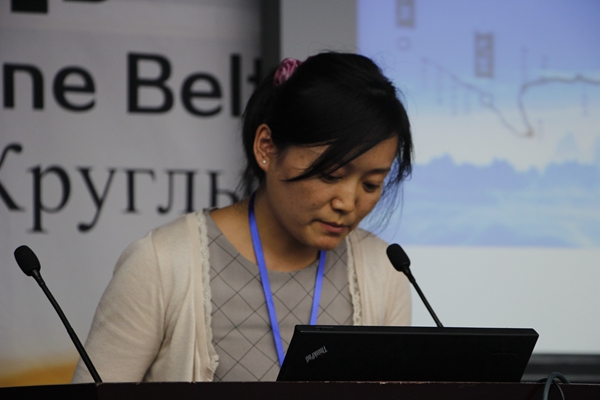
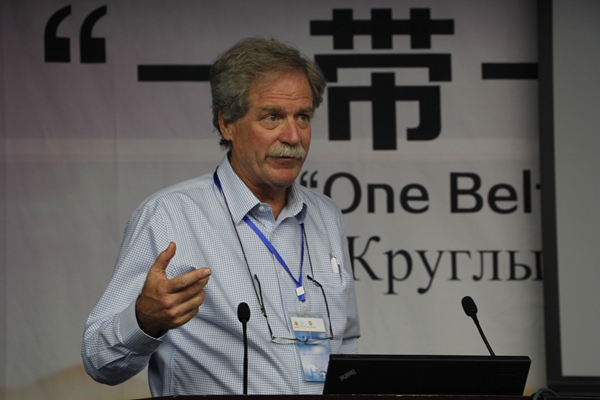
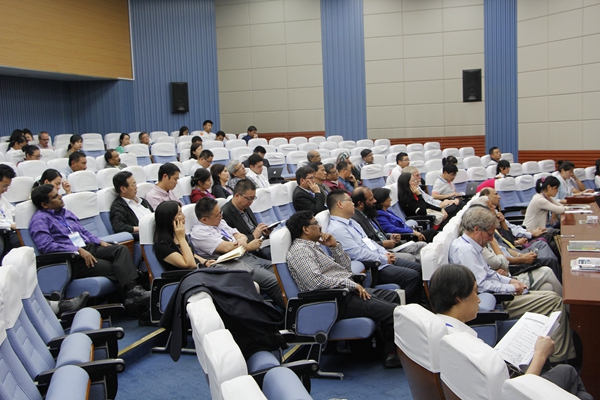
To seek consensus through exchange and win-win development through cooperation, “One Belt One Road” Cultural Roundtable Conference co-sponsored by the CSQLF (China Soong Chingling Foundation) and Lanzhou University was successfully concluded on the afternoon of August 25th. Li Ning, Secretary-General of CSQLF, and Long Ruijun, director of Scientific Research Office of LZU attended the meeting which was presided by Song Jian, vice director of the Liaison Office of CSQLF.
At the closing ceremony, Professor Ding Shuqin on behalf of the sub-forum of "cultural exchanges", Dr. Yang Lijuan on behalf of the sub-forum of "regional cooperation", and Dr. David Molden on behalf of the sub-forum of "university cooperation" made summary remarks. In the end of the meeting, Professor Long Ruijun on behalf of the organizers made a concluding remark.
It was reported that the meeting was the first international symposium jointly organized by the Chinese university and charitable organization after the proposal made by Chinese President Xi Jinping to build the "Silk Road Economic Belt" and "21st Century Maritime Silk Road". In the two-day session, attendees reached many constructive consensuses through brainstorming, dialogue and exchanges, which were mainly in three aspects:
First, to construct the “One Belt One Road” in the principle of joint discussion, co-construction, and win-win development, we should not only actively promote the regional economic and trade exchanges and cooperation, but also appreciate the implication of the cultural heritage and humanistic spirit. It is to further deepen the civil friendship and practical cooperation of countries along the roads, to carry out the cross-border and cross-civilization exchange activities, to promote the idea of exchange, integration, dialogue and cooperation among counties along the Silk Road Economic Belt and the Maritime Silk Road. All these would make the Eurasian areas more prosperous, peaceful and tranquil.
Second, to construct the “One Belt One Road” better, the traditional regional economic development model should be discarded to explore new ways of regional cooperation. Under the premise of the philosophy and rules shared by every country, we should expand economic exchanges based on equality, mutual benefit and win-win results, promote cooperation of higher level and richer content, which is beneficial to the transfer of industries, trade exchanges, and cooperation in investment as well as culture, education, science, ecology and environment, ultimately reaching the normalization in policy-making communication and liberalization in trade and investment.
Third, in the era featuring closer integration of knowledge and economy, higher education has become an important force to drive national socio-economic development. In the process of building “One Belt One Road”, we should promote better educational exchanges among countries along the roads, especially exchanges and cooperation in higher education, which is of great significance. Countries along the roads should further encourage all forms of personnel exchange in higher education sectors and cultivate more experts and intellectuals for the construction of “One Belt One Road” in the way of educational resources sharing at high level, scientific and technical cooperation and personnel exchanges.
During the meeting, LZU signed a number of agreements in student exchanges and resource sharing with Indian Sigulini University and Russian Irkutsk State University. Himalayan University Consortium (HUC) recuited new members: the Chinese Academy of Sciences, University of Science and Technology of China , Kunming Institute of Botany of Chinese Academy of Sciences, Indian Sigulini University and India-China Research Institute. It also revised the Union constitution and elected the Steering Committee members.
"One Belt One Road" Cultural Roundtable Conference concluded successfully after two days’ academic discussion and exchange. Time flies, but the spirit of cooperation has been rooted in the mind of experts from 21 countries including China. The experts and scholars will help promote the cooperation and development in political, economic, cultural, technological, ecological and many other fields among countries along the Silk Road Economic Belt.
(Translated by Li Yafeng; proofread by Sissi Xu)


